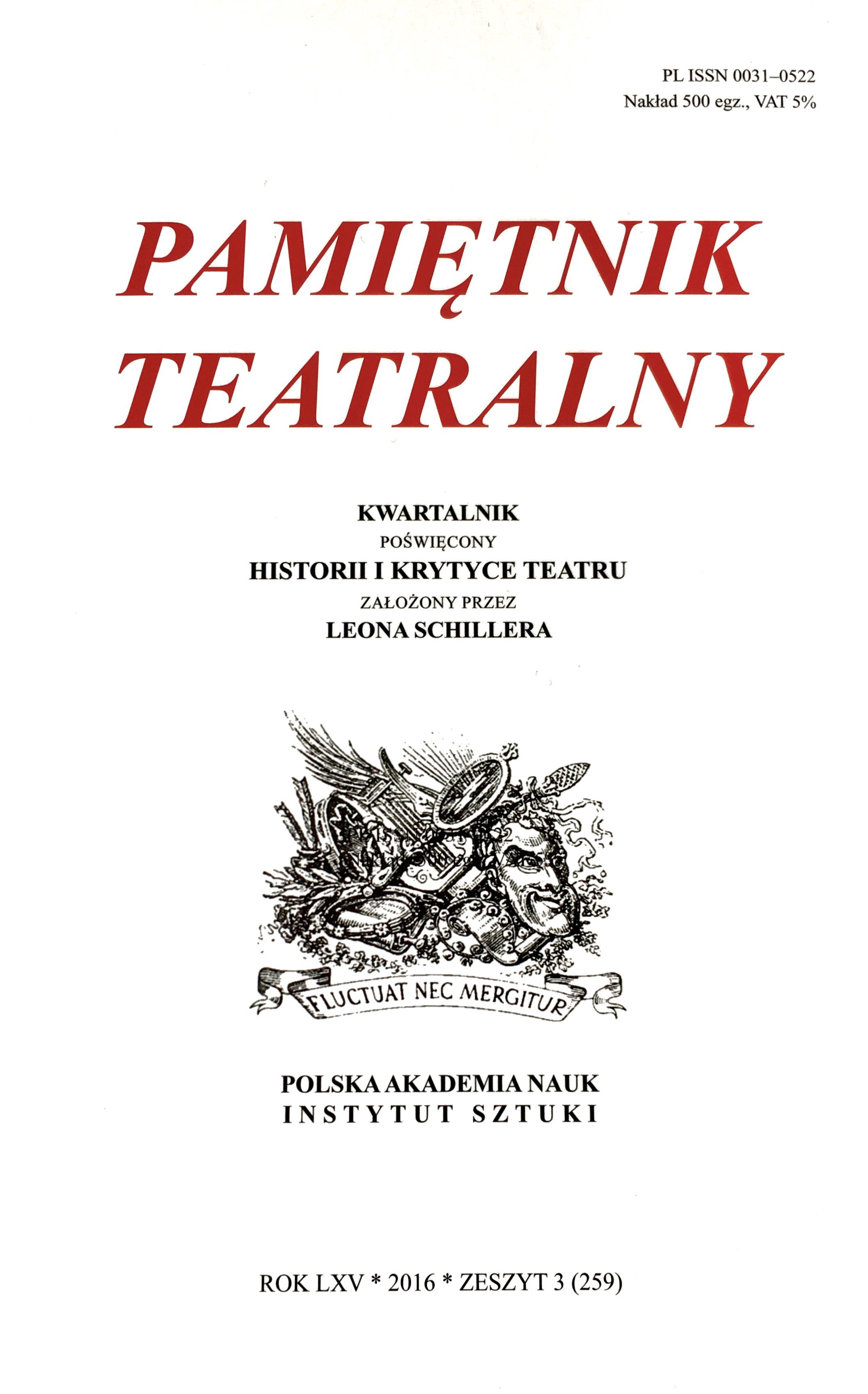Efekt zwierciadła
The Mirror Effect
In Search for the Spectator of Calderón's Theatrum Mundi
Author(s): Beata BaczyńskaSubject(s): Theatre, Dance, Performing Arts
Published by: Instytut Sztuki Polskiej Akademii Nauk
Keywords: Calderon de la Barca;theatrum mundi;metatheatre
Summary/Abstract: The article focuses on the theatrum mundi metaphor in Calderón, viewed in the context of the debate concerning the metatheatrical dimension of his plays. It discusses studies on the subject preceding the metatheatre theory by Lionel Abel (Ernst R. Curtius, Walter Benjamin, Jean Jacquot), as well as the ensuing debate on metatheatre among Spanish Golden Age scholars and its implications for the comedia research (Henryk Ziomek, Catherine Larson, Thomas A. O’Connor, F. P. Casa, Urszula Aszyk, Katarzyna Mroczkowska-Brand, Jonathan Thacker, Graciela Balestrino, Kasia Lech). Sławomir Świontek’s concept of metatheatre is applied to analyse La vida es sueño and El gran teatro del mundo, and both are shown to be paradigmatic and exemplary metatheatre plays. The author discusses the meta-enunciative properties of dramatic dialogue and its metatheatrical cues in Calderón and underscores the importance of the mise en abyme effect implied by the distinctly self-reflexive qualities of the plays. The use of metatheatrical devices is studied throughout the playwright’s work, in the comedia (La vida es sueño and Amor, honor y poder), auto sacramental (El gran teatro del mundo and La protestación de la fe), as well as entremés (El toreador), and mojiganga (Mundinovo, Las visiones de la muerte). The resulting metatheatrical quality, achieved through Calderón’s targeting on the spectator-actor and reality-fiction relations, lets the audience look into the mirror of theatre to see infinitely reproducing reflexions of themselves, viz. the theatre of the world.
Journal: Pamiętnik Teatralny
- Issue Year: 259/2016
- Issue No: 3
- Page Range: 81-102
- Page Count: 20
- Language: Polish

